Simply unprecedented
A new strain of coronavirus has jolted the world. It closed all in-person classes and prevented all public events at every UNC System school. For the first time ever, this campus will postpone spring commencement. But learning, research, and our university’s much-needed impact go on.
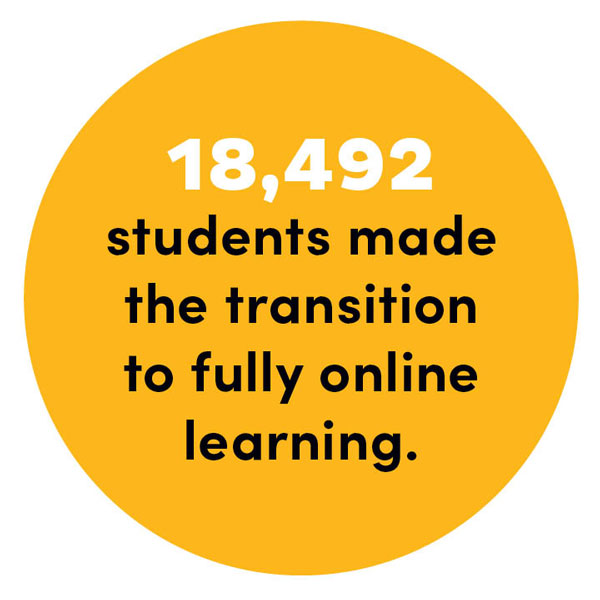
March was a cruel month. Without drastic public health measures, April would have been the cruelest.
The first case of the coronavirus in North Carolina was detected on March 3.
On March 11, UNCG officials, in accord with UNC System universities, canceled all in-person classes for the following week, giving faculty time to prepare online lessons. As of March 23, all classes were online. The spring sports seasons were ended. All performances, lectures, and games were canceled. The students’ research expos would be online. Alumni Reunion weekend would be online-only, with big hugs replaced by heart emojis.
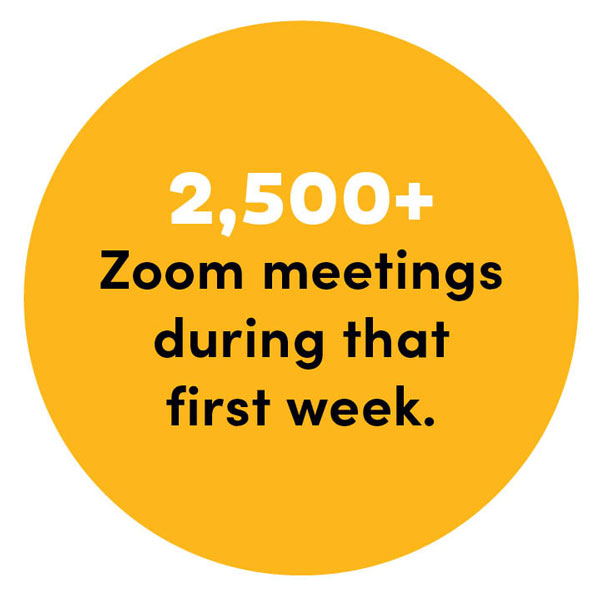 The government set advisories on group sizes to limit the chance of transmission. First 100, then 50. The “physical distancing” standard of six feet became the norm. Students were asked to return home, where possible. In late March, the mayor and later the governor issued a “stay at home” advisory.
The government set advisories on group sizes to limit the chance of transmission. First 100, then 50. The “physical distancing” standard of six feet became the norm. Students were asked to return home, where possible. In late March, the mayor and later the governor issued a “stay at home” advisory.
The campus was bursting with spring flowers. And calmed with quiet. No ball practices, no study sessions in Jackson, no music wafting from the Music Building. Just silence.
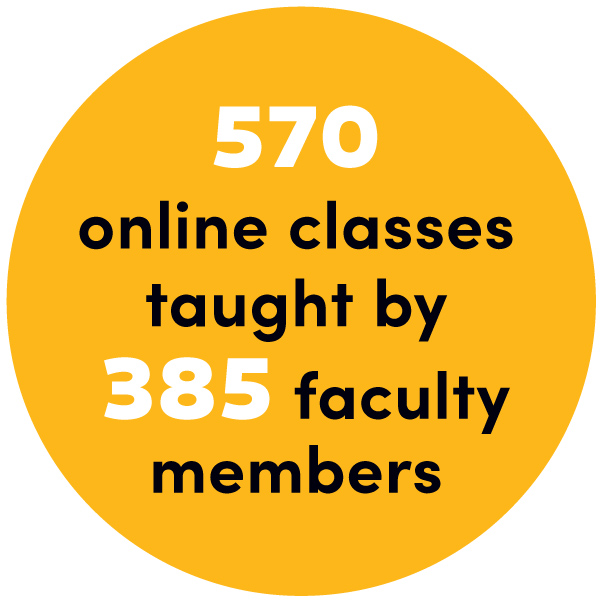
The activity was all online. Using Zoom videoconferencing and other methods, and with lots of support and advice from the UNCG Online division, the faculty turned their in-person classes into online ones for the remainder of the semester.
The students could choose whether to receive a grade or take it satisfactory/unsatisfactory. Faculty and staff were reminded to be fair and reasonable. “We’re all in this together,” Chancellor Gilliam said.
With so many decisions to make and problems to address, somehow, most were resolved in a timely way. Perhaps not perfectly – it was an unprecedented situation.
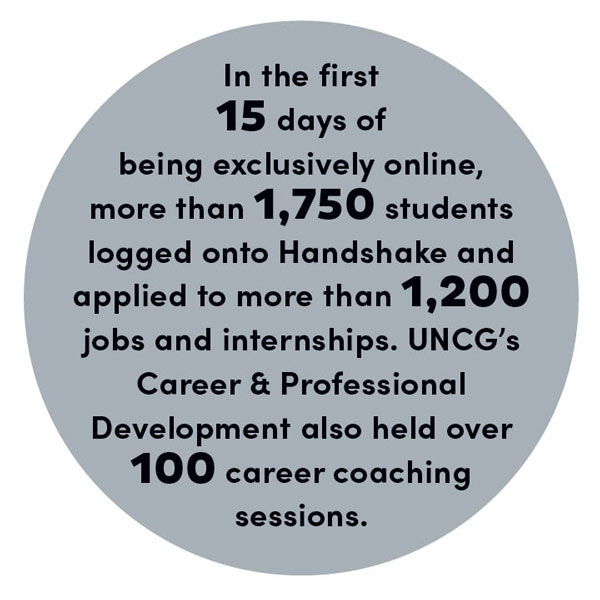
The campus has seen tough times. The horrible Typhoid outbreak of 1899. The Spanish flu quarantine on our campus in 1918-19. The Depression of the 1930s. This COVID-19 pandemic rocked the campus – and the world – in a remarkable way.
The chancellor’s message was clear. Again and again: We are in this together. We will get through this together. No student will be left without a viable living option. Faculty, please be patient and understanding with students. Students, please do the same with faculty. And we are not closing – we are moving forward with our semester, albeit under some unique circumstances.
Learning comes in many forms. The lessons learned and relationships strengthened this semester will last a lifetime.
And we’ll all be glad when this is over.
-

Very contagious
Our understanding of things is changing, but what we do understand is that the virus is very contagious. That means that it’s easily spread from person to person, or through surfaces.
-
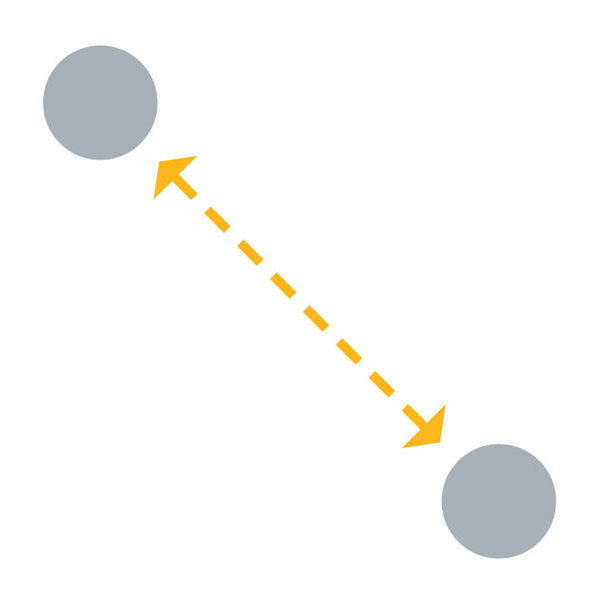
Stay away
The public health measures for slowing the spread of the virus are largely focused on social distancing. In this case, social distancing means allowing more space between people and sharing items less. And the cancellations of large gatherings are reasonable steps in the middle of a very contagious new outbreak as a way of slowing the epidemic.
-
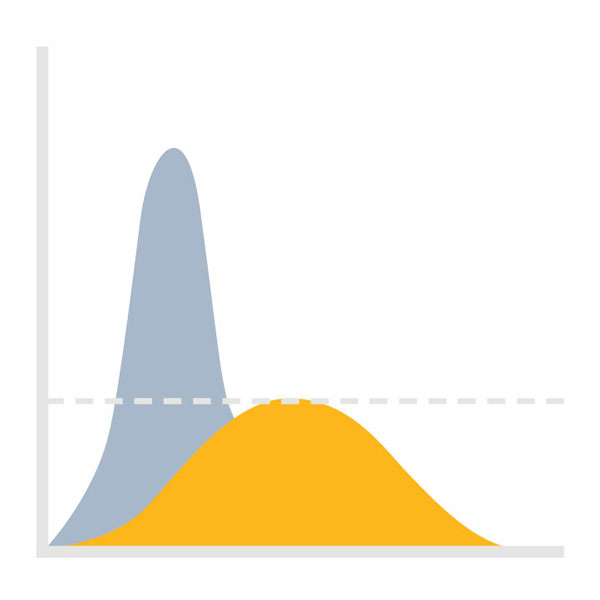
Flatten the curve
If there is a large increase of serious coronavirus cases in a very concentrated period of time, our health system won’t be able to meet the needs of an influx of patients. It would also make it hard for people who have other serious health conditions who need those hospital beds, but don’t have coronavirus.
-

Ripple effects
One concern with school closures and workplaces being closed is child and elder care. It also creates financial implications for vulnerable groups. Not all hourly workers have paid sick leave or adequate sick leave. As our economy increasingly moves toward a consultant-based or gig economy, those jobs rarely include paid sick leave.
Economic repercussions
Dr. Martin Andersen, assistant professor in the Bryan School, is an expert on health economics. We asked him in mid-March (with a mid-April follow-up) about the economic impact.
The outlook I think near-term we are going to have a fairly severe contraction due to a significant reduction in demand for services as people stay home. By practicing social distancing, that unfortunately means that our service-driven economy cannot survive well. … How long we have to practice social distancing will determine how quick the recovery will be.
What about health insurance? More than half a million North Carolinians have applied for unemployment benefits over the first three weeks since many businesses started shutting their doors. Many of them not only lost their job, but also their health insurance. Health insurance makes it easier to pay for health care and can improve health, so it will be important for these people to get health insurance coverage as soon as possible. People who have just lost insurance can sign up for new coverage on healthcare.gov, but others are stuck since the state relies on healthcare.gov to facilitate insurance enrollment – and the federal government has not authorized a special enrollment period.
Stay safe The economic impact is secondary. The impact on life is so much larger. The best thing you can do is be prepared to stay home and do exactly that.
Learn more at go.uncg.edu/coronavirus
Aside from the faculty, Dean Brett Carter and his office are the main contact for students. Most are off-campus or at home. Nearly 120 students had registered to remain on campus as April began. For a variety of reasons, it was the best place for them to be. Wherever the students are, they are all connected as Spartans, he says. Every one of the nearly 20,000 UNCG students has a unique story, unique dreams, unique hurdles they’ve overcome. And this is a challenge we’ll collectively take on.
“We have a “culture of care,’” Carter said. “That means ‘We are here for you. Your success is important to us.’”
They are providing resources and support – and keeping all the students informed.
We are doing everything we can to provide resources and support to our students.
“Any students who’ve been in self-isolation or quarantine, wherever that is, our Dean of Students staff has reached out at least twice a day to check in.”
Volunteer campus partners also reach out
to those students. Additionally, campus partners reach out weekly to the students who are on campus.
“I’ve been here at UNCG 25 years. To have a moment like this … It’s just amazing how our students, our faculty, our staff, how we all come together. I know it sounds cliche, but we are all in this together. And we will be there for each other. And we will get through this.”
Student Affairs’ focus is on the incoming first-year class. “The University has already announced SOAR (orientation) will be online. Student Affairs is looking at how we will make them feel welcomed from a distance, feel that they are a
UNCG Spartan.”
The division is starting to plan next semester’s programs and activities, knowing there’s the potential there could be a late start to the semester. And there’s special thought of the first-time students. “We want the students to know we care about you – whether you’re in close proximity or at a distance, you’re going to feel like a Spartan.”
Alumni want to help? “When you are a member of UNCG, there is a special bond. The alumni have made this institution into what it is today.”
“At the 2017 Alumni Reunion, I met with the Class of 1967. They asked me, ‘What is the biggest need for the students?’ I said addressing food and housing insecurity needs. They said, ‘We want to establish a Student Assistance for Emergencies (SAFE) Fund.’
“One alumnus reached out and gave a major gift. There have been many gifts, and the SAFE Fund is in the endowment phase. It will be for in-the-moment emergencies. It is an opportunity to give back.”
Carter explained there will not only be immediate needs but also ongoing needs for many students, as repercussions of this pandemic. “The bottom line, we know students will be challenged financially.”
“Having the Class of 1967 SAFE Fund in place for the future will hopefully fill in some of those financial gaps.”
Spartans around the nation, in a variety of ways, are helping lead the effort to keep people safe and help stanch the crisis. From principals from the School of Education protecting children to Nutrition alumni who help feed many students in our schools and convalescent centers. From counselors and psychologists strengthening mental health during this time of trauma to nurses serving long shifts to help save lives. Just a few examples:
• Kelley Richardson ’11 MPH is preparedness health educator for the NC Division of Public Health’s Preparedness and Response Branch. Some days, she serves as a public information officer in the State Emergency Operations Center. At other times, she helps local-level partners source health-related resources. “Many of us in public health have never responded to a disease outbreak of this magnitude,” she said.
• Monica McGee ’08 served as ASL interpreter during Governor Cooper’s daily news conferences on the pandemic. She is a graduate of UNCG’s Professions in Deafness – Interpreter Preparation program.
• Hudson’s Hill clothing store in downtown Greensboro is led by alumni Tinker Clayton ’86 and William Clayton ’10, as well as Evan Morrison. They were contracted to make 10,000 face masks for healthcare workers at Cone Health, sewing them at the former Cone mill White Oak.
• Consumer, Apparel, and Retail Studies (CARS) Alumni and students also are using their sewing skills to make personal protective equipment. Kerrie Rogers Engle ’11, MBA ’18, Danielle Teah ’16, Casey Crespo ’07, and Lindsey Flowers Smith ’20 have produced many masks.
See Alumna Kerri Engle’s blog post about mask-making
